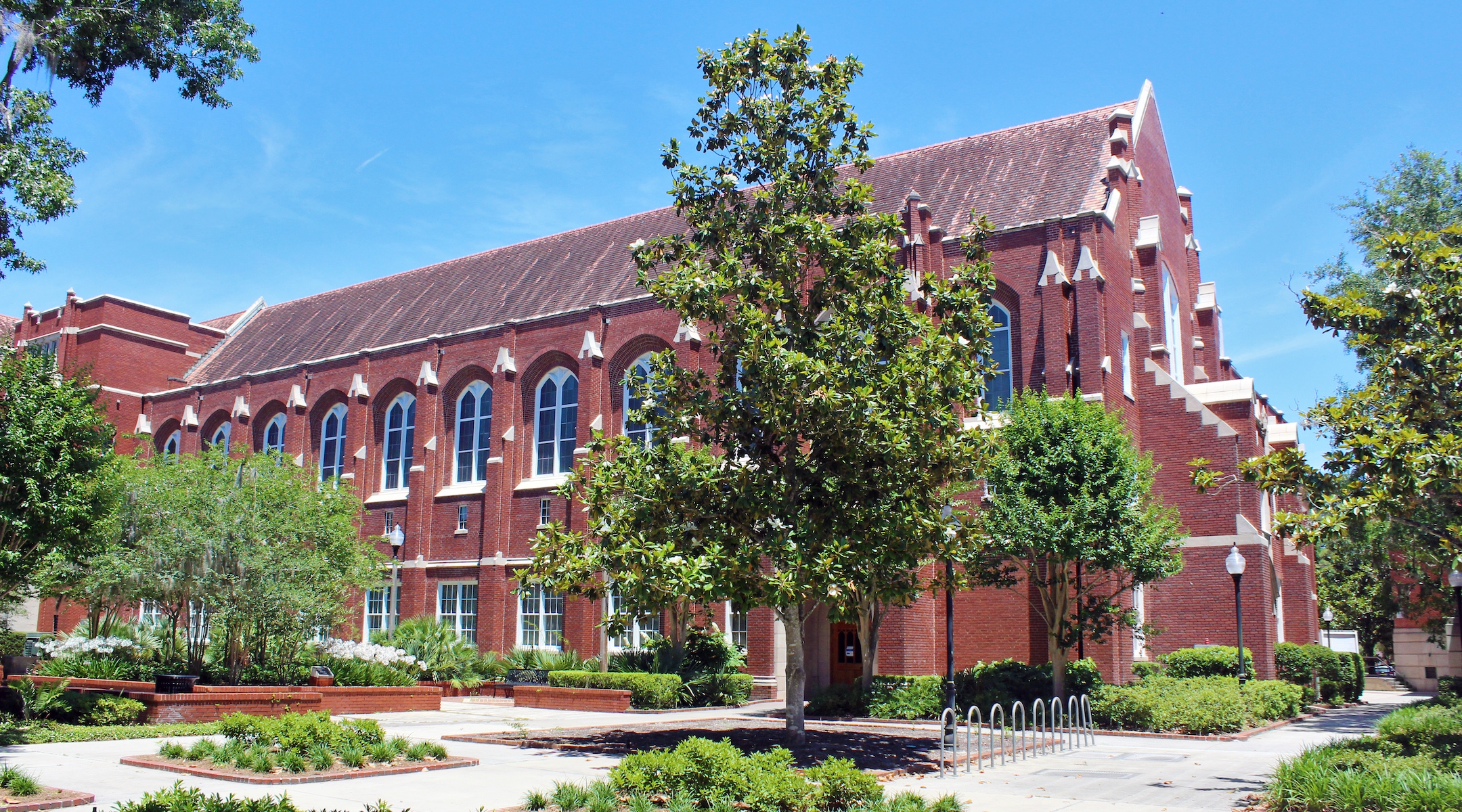Court says Florida university officials are not going to shut down Students for Justice in Palestine
Pro-Palestinian student group sought to block university from deactivating them — but court said that won’t happen

The University of Florida’s largest campus is in Gainesville. Photo by Steven Martin via JTA
Students for Justice in Palestine went to court to stop the University of Florida from shutting the organization down, but a federal court declined to intervene, saying it’s clear the university is not actually planning to carry out its threat.
The University of Florida did not immediately respond to a request for comment.
In denying SJP’s request for a preliminary injunction to prevent its deactivation, the U.S. District Court for the Northern District of Florida said it understood why the group was “feeling anxious” about the controversy.
Governor ‘disparaged’ students, court said
The court noted in its decision issued Wednesday that Florida Gov. Ron DeSantis “repeatedly disparaged” members as “‘terrorists’ who support ‘jihad’ and repeated the falsehood that their organization has been ‘deactivated.’”
But the court found that comments by Florida University Chancellor Ray Rodrigues made it clear the deactivation order was not going to be carried out.
SJP was represented by the American Civil Liberties Union, which said that the court’s ruling was based on Rodrigues acknowledging that Florida SJP chapters are “fully autonomous from the national SJP organization.”
ACLU attorney Brian Hauss called on the chancellor to “formally acknowledge that the deactivation order will not be enforced by removing it from his official website.”
How the controversy began
Rodrigues issued a statement Oct. 24 saying SJP’s University of Florida and University of South Florida chapters “must be deactivated” because they “exist under the headship of the National Students for Justice in Palestine,” which he accused of supporting terrorism in violation of Florida law.
But during a Nov. 9 university board of governors meeting, Rodrigues acknowledged that the groups had not been shut down on either UF or USF campuses. “The constitutions of both organizations, which were submitted by them at the beginning of the school year when they were registered as an active student-registered organization, clearly state their organization is not subservient or under the national Students for Justice in Palestine,” Rodrigues was quoted as saying in media reports on the meeting. “Therefore, the universities have not deactivated their university chapters of SJP.”
Rodrigues also said university officials had sought legal opinions about dissolving the chapters and concluded that doing so would risk “potential personal liability for university actors who deactivate the student-registered organization.”
Florida ACLU executive director Howard Simon called the concern over personal liability “a classic example of doing the right thing for the wrong reasons.”
Reaction from lawyers and students
Simon also said the deactivation order violated “the free speech rights of university students and the important role that universities play in American life to vigorously debate all social issues free from censorship.”
Both schools’ SJP chapters said in a statement that “ever since the deactivation order was issued, we have had to look over our shoulders, knowing we are under threat of being shut down at any minute. We refuse to let those in power intimidate us into staying silent, and hope that our lawsuit to protect our First Amendment rights will give heart to other students speaking out for Palestinian rights and calling for an end to the current violence in Gaza.”
SJP was also represented by Palestine Legal, whose senior staff attorney, Radhika Sainath, called the group’s activism “squarely in the tradition of students protesting against injustice, and we’re glad to see the court recognize that our clients are engaged young people speaking out for their community.”






















